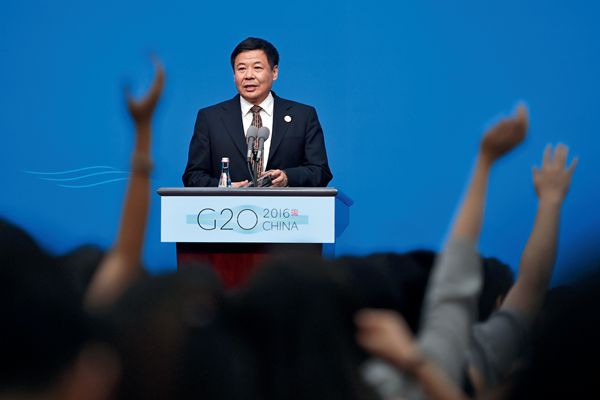A New Phase of Globalization
China Today by He Yafei, December 20, 2016 Adjust font size:

China’s Vice Finance Minister Zhu Guangyao speaks at a press conference on G20 and global growth as well as global economic governance in Hangzhou, Zhejiang Province on September 2, 2016.
A deep insight into the new changes, challenges, and development trends in globalization and global governance may help us better understand why the world has been confronted with a series of problems. History fluctuates in waves, rather than moving forward in a linear way. The progress of globalization over the last 20 to 30 years suggested that a new phase was coming, in terms of both globalization and global governance. In this new era, when East and West will join hands, wisdom from the East is expected to contribute much to the world. In other words, global governance calls for wisdom from the East, including China.
The reason? Let’s briefly look back at the history of global governance.
The essence of global governance lies in the formulation and implementation of international institutions and rules. The present system, centered around the United Nations (UN), was established predominantly by the U.S. at the end of WWII and was gradually built up over the decades following the war. With the end of the Cold War came a move away from a polarization in ideology and military alliance, meaning these institutions and rules were widely supported by most powers, including the U.S., Russia, and China.
In the 1990s, Europe first put forward and promoted the idea of global governance in the context of a deeper and broader development of globalization. However, economic globalization has brought problems, like expanding financial crises, an increase in trade friction, ceaseless regional conflicts, scrambles for water resources, and a worsening of climate change. People now realize that in the era of globalization, every country has a stake in its neighbour’s success and relies on each other. It is time for the international community to unite to overcome the challenges we all face. A zero-sum game is just not feasible anymore. In addition, the establishment of international organizations such as the IMF, the World Bank, and the World Trade Organization has facilitated the institutionalization and legalization of global governance, as well as tightening up the rules of the game at the same time.